Всем привет.
Инструкция по использованию Parity в качестве основного кошелька Ethereum Classic.
Я знаю, что многие майнеры в том числе и кто майнит у меня на ПУЛАХ используют биржевые кошельки вместо локальных кошельков, но я не сторонник такого решения и особенно не рекомендую новичкам.
Я уже пережил два уполовинивания Bitcoin и крах нескольких бирж Mt.Gox, Cryptsy с монетами пользователей.
И еще биржа, которая почти на грани - BitFenix.
Parity быстрый легковесный кошелек в отличии от Mist (geth)
И так приступим. Инструкция для Windows. Для Linux и Mac OS аналогично.
Переходим на сайт https://ethcore.io/ скачиваем Parity или ниже прямая ссылка.
parity-1.3.0-install-win64.exe
Устанавливаем. Установка займет несколько секунд.
Идем в папку с установленной Parity по пути:
Program Files\Ethcore\Parity
Создаем ярлык parity.exe и размещаем его на рабочем столе.
Идем в свойства ярлыка и дописываем параметры запуска Parity.
--chain classic
Поле объект должно выглядеть так:
"Program Files\Ethcore\Parity\parity.exe" --chain classic
Там же можно сменить значок ярлыка.
Скриншот:
После этого можно запустить Parity через ярлык. Начнется синхронизация Parity. Это займет некоторое время.
Если ждать лень то вот ссылки на блокчейн:
Ethereum Ckassic от 10.09.2016 г. >>> MEGA
Ethereum от 18.09.2016 г. >>> MEGA
Распаковать архив в папку .parity
Windows 10:
Пользователи >> User >> .parity
Дальше устанавливаем по умолчанию браузер Chrome. И идем по адресу:
http://localhost:8080/
Загружаемся в наш кошелек Ethereum Classic
Выполним рекомендации по proxy:
Идем в Настройки Chrome >> Показать дополнительные настройки >> Сеть >> Изменить настройки прокси-сервера.
Откроются свойства интернет Идем - Настройка сети откроется Настройка параметров локальной сети
Активировать: Использовать сценарий автоматической настройки и внести туда:
http://localhost:8080/proxy/proxy.pac
Сохраниться и выйти.
Скриншоты:
После этого заходим в браузер:
http://home.parity/
Создаем новый аккаунт >> Create Account:
Нужно внести пароль. Придумайте сложный пароль или воспользуйтесь Генератором Паролей. Не забудьте его.....
Собственно все можно пользоваться.
Можно еще добавить в ярлык запуска Parity ключи --dapps-user и --dapps-pass для дополнительной безопасности. Тогда привходе в браузере будет дополнительно запрашиваться Пользователь и Пароль.
Пример:
"Program Files\Ethcore\Parity\parity.exe" --chain classic --dapps-user user --dapps-pass pass
Скриншот:
Полный список параметров Parity под спойлером:
Operating Options:
--mode
MODE Set the operating mode. MODE can be one of:
active - Parity continuously syncs the chain.
passive - Parity syncs initially, then sleeps and
wakes regularly to resync.
dark - Parity syncs only when an external interface
is active. [default: active].
--mode-timeout SECS
Specify the number of seconds before inactivity
timeout occurs when mode is dark or passive
[default: 300].
--mode-alarm SECS
Specify the number of seconds before auto sleep
reawake timeout occurs when mode is passive
[default: 3600].
--chain CHAIN
Specify the blockchain type. CHAIN may be either a
JSON chain specification file or olympic, frontier,
homestead, mainnet, morden, classic or testnet
[default: homestead].
-d --db-path PATH
Specify the database & configuration directory path
[default: $HOME/.parity].
--keys-path PATH
Specify the path for JSON key files to be found
[default: $HOME/.parity/keys].
--identity NAME
Specify your node's name.
Account Options:
--unlock ACCOUNTS
Unlock ACCOUNTS for the duration of the execution.
ACCOUNTS is a comma-delimited list of addresses.
Implies --no-signer.
--password FILE
Provide a file containing a password for unlocking an account.
--keys-iterations NUM
Specify the number of iterations to use when
deriving key from the password (bigger is more secure) [default: 10240].
--no-import-keys
Do not import keys from legacy clients.
--force-signer
Enable Trusted Signer WebSocket endpoint used by Signer UIs, even when --unlock is in use.
--no-signer Disable
Trusted Signer WebSocket endpoint used by Signer UIs.
--signer-port PORT
Specify the port of Trusted Signer server [default: 8180].
--signer-path PATH
Specify directory where Signer UIs tokens should be stored. [default: $HOME/.parity/signer]
--signer-no-validation
Disable Origin and Host headers validation for
Trusted Signer. WARNING: INSECURE. Used only for development.
Networking Options:
--no-network
Disable p2p networking.
--port PORT
Override the port on which the node should listen [default: 30303].
--min-peers NUM
Try to maintain at least NUM peers [default: 25].
--max-peers NUM
Allow up to that many peers [default: 50].
--nat METHOD
Specify method to use for determining public
address. Must be one of: any, none, upnp, extip: [default: any].
--network-id INDEX
Override the network identifier from the chain we are on.
--bootnodes NODES
Override the bootnodes from our chain. NODES should
be comma-delimited enodes.
--no-discovery
Disable new peer discovery.
--node-key KEY
Specify node secret key, either as 64-character hex
string or input to SHA3 operation.
--reserved-peers FILE
Provide a file containing enodes, one per line.
These nodes will always have a reserved slot on top
of the normal maximum peers.
--reserved-only
Connect only to reserved nodes.
API and Console Options:
--no-jsonrpc
Disable the JSON-RPC API server.
--jsonrpc-port PORT
Specify the port portion of the JSONRPC API server [default: 8545].
--jsonrpc-interface IP
Specify the hostname portion of the JSONRPC API
server, IP should be an interface's IP address, or
all (all interfaces) or local [default: local].
--jsonrpc-cors URL
Specify CORS header for JSON-RPC API responses.
--jsonrpc-apis APIS
Specify the APIs available through the JSONRPC
interface. APIS is a comma-delimited list of API
name. Possible name are web3, eth, net, personal,
ethcore, ethcore_set, traces, rpc.
[default: web3,eth,net,ethcore,personal,traces,rpc].
--jsonrpc-hosts HOSTS
List of allowed Host header values. This option will
validate the Host header sent by the browser, it
is additional security against some attack
vectors. Special options: "all", "none",
[default: none].
--no-ipc
Disable JSON-RPC over IPC service.
--ipc-path PATH
Specify custom path for JSON-RPC over IPC service
[default: $HOME/.parity/jsonrpc.ipc].
--ipc-apis APIS
Specify custom API set available via JSON-RPC over
IPC [default: web3,eth,net,ethcore,personal,traces,rpc].
--no-dapps
Disable the Dapps server (e.g. status page).
--dapps-port PORT
Specify the port portion of the Dapps server [default: 8080].
--dapps-interface IP
Specify the hostname portion of the Dapps
server, IP should be an interface's IP address, or local [default: local].
--dapps-user USERNAME
Specify username for Dapps server. It will be
used in HTTP Basic Authentication Scheme.
If --dapps-pass is not specified you will be asked for password on startup.
--dapps-pass PASSWORD
Specify password for Dapps server. Use only in conjunction with --dapps-user.
--dapps-path PATH Specify directory where dapps should be installed. [default: $HOME/.parity/dapps]
Sealing/Mining Options:
--author ADDRESS
Specify the block author (aka "coinbase") address for sending block rewards from sealed blocks.
NOTE: MINING WILL NOT WORK WITHOUT THIS OPTION.
--force-sealing
Force the node to author new blocks as if it were always sealing/mining.
--reseal-on-txs SET
Specify which transactions should force the node to reseal a block. SET is one of:
none - never reseal on new transactions;
own - reseal only on a new local transaction;
ext - reseal only on a new external transaction;
all - reseal on all new transactions [default: own].
--reseal-min-period MS
Specify the minimum time between reseals from incoming transactions. MS is time measured in
milliseconds [default: 2000].
--work-queue-size ITEMS
Specify the number of historical work packages
which are kept cached lest a solution is found for
them later. High values take more memory but result
in fewer unusable solutions [default: 20].
--tx-gas-limit GAS
Apply a limit of GAS as the maximum amount of gas a single transaction may have for it to be mined.
--relay-set SET
Set of transactions to relay. SET may be:
cheap - Relay any transaction in the queue (this
may include invalid transactions);
strict - Relay only executed transactions (this
guarantees we don't relay invalid transactions, but
means we relay nothing if not mining);
lenient - Same as strict when mining, and cheap
when not [default: cheap].
--usd-per-tx USD
Amount of USD to be paid for a basic transaction
[default: 0.005]. The minimum gas price is set
accordingly.
--usd-per-eth SOURCE
USD value of a single ETH. SOURCE may be either an
amount in USD, a web service or 'auto' to use each
web service in turn and fallback on the last known
good value [default: auto].
--price-update-period T
T will be allowed to pass between each gas price
update. T may be daily, hourly, a number of seconds,
or a time string of the form "2 days", "30 minutes"
etc. [default: hourly].
--gas-floor-target GAS
Amount of gas per block to target when sealing a new block [default: 4700000].
--gas-cap GAS A cap on how large we will raise the gas limit per
block due to transaction volume [default: 6283184].
--extra-data STRING
Specify a custom extra-data for authored blocks, no more than 32 characters.
--tx-queue-size
LIMIT Maximum amount of transactions in the queue (waiting
to be included in next block) [default: 1024].
--remove-solved
Move solved blocks from the work package queue
instead of cloning them. This gives a slightly
faster import speed, but means that extra solutions
submitted for the same work package will go unused.
--notify-work URLS
URLs to which work package notifications are pushed.
URLS should be a comma-delimited list of HTTP URLs.
Footprint Options:
--tracing BOOL
Indicates if full transaction tracing should be
enabled. Works only if client had been fully synced
with tracing enabled. BOOL may be one of auto, on,
off. auto uses last used value of this option (off
if it does not exist) [default: auto].
--pruning METHOD
Configure pruning of the state/storage trie. METHOD
may be one of auto, archive, fast:
archive - keep all state trie data. No pruning.
fast - maintain journal overlay. Fast but 50MB used.
auto - use the method most recently synced or
default to fast if none synced [default: auto].
--cache-size-db MB
Override database cache size [default: 64].
--cache-size-blocks MB
Specify the prefered size of the blockchain cache in megabytes [default: 8].
--cache-size-queue MB
Specify the maximum size of memory to use for block queue [default: 50].
--cache-size MB
Set total amount of discretionary memory to use for
the entire system, overrides other cache and queueoptions.
--fast-and-loose
Disables DB WAL, which gives a significant speed up
but means an unclean exit is unrecoverable.
--db-compaction TYPE
Database compaction type. TYPE may be one of:
ssd - suitable for SSDs and fast HDDs;
hdd - suitable for slow HDDs [default: ssd].
--fat-db Fat database.
Import/Export Options:
--from BLOCK
Export from block BLOCK, which may be an index or hash [default: 1].
--to BLOCK
Export to (including) block BLOCK, which may be an
index, hash or 'latest' [default: latest].
--format FORMAT
For import/export in given format. FORMAT must be
one of 'hex' and 'binary'.
Snapshot Options:
--at BLOCK
Take a snapshot at the given block, which may be an
index, hash, or 'latest'. Note that taking snapshots at
non-recent blocks will only work with --pruning archive
[default: latest]
Virtual Machine Options:
--jitvm Enable the JIT VM.
Legacy Options:
--geth
Run in Geth-compatibility mode. Sets the IPC path
to be the same as Geth's. Overrides the --ipc-path
and --ipcpath options. Alters RPCs to reflect Geth
bugs.
--testnet
Geth-compatible testnet mode. Equivalent to --chain
testnet --keys-path $HOME/parity/testnet-keys.
Overrides the --keys-path option.
--datadir PATH
Equivalent to --db-path PATH.
--networkid INDEX
Equivalent to --network-id INDEX.
--peers NUM
Equivalent to --min-peers NUM.
--nodekey KEY
Equivalent to --node-key KEY.
--nodiscover
Equivalent to --no-discovery.
-j --jsonrpc
Does nothing; JSON-RPC is on by default now.
--jsonrpc-off
Equivalent to --no-jsonrpc.
-w --webapp
Does nothing; dapps server is on by default now.
--dapps-off
Equivalent to --no-dapps.
--rpc
Does nothing; JSON-RPC is on by default now.
--rpcaddr IP
Equivalent to --jsonrpc-interface IP.
--rpcport PORT
Equivalent to --jsonrpc-port PORT.
--rpcapi APIS
Equivalent to --jsonrpc-apis APIS.
--rpccorsdomain URL
Equivalent to --jsonrpc-cors URL.
--ipcdisable
Equivalent to --no-ipc.
--ipc-off
Equivalent to --no-ipc.
--ipcapi APIS
Equivalent to --ipc-apis APIS.
--ipcpath PATH
Equivalent to --ipc-path PATH.
--gasprice WEI
Minimum amount of Wei per GAS to be paid for a
transaction to be accepted for mining. Overrides --basic-tx-usd.
--etherbase ADDRESS
Equivalent to --author ADDRESS.
--extradata STRING
Equivalent to --extra-data STRING.
--cache MB
Equivalent to --cache-size MB.
Miscellaneous Options:
-l --logging LOGGING
Specify the logging level. Must conform to the same format as RUST_LOG.
--log-file FILENAME
Specify a filename into which logging should be directed.
--no-color
Don't use terminal color codes in output.
-v --version
Show information about version.
-h --help
Show this screen.
И Добро Пожаловать ко мне на пулы Ethereum Classic и Ethereum
Please Donate:
ETH: 0xcD89f563637AfB40bc84AEb1951bF8FEbd8cD1B7
ETC: 0x4976f77C8D895A34F7C5141ed6b14a1457A8b8A4
BTC: 14RTSbmixwthDNvxcLhXvuAyQfBHGXEXTc




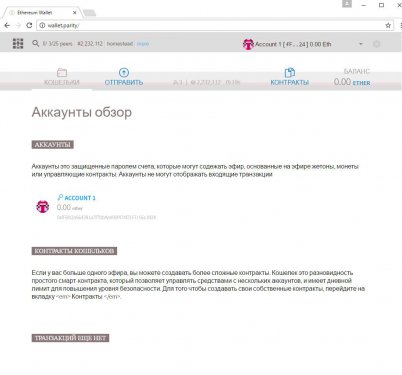
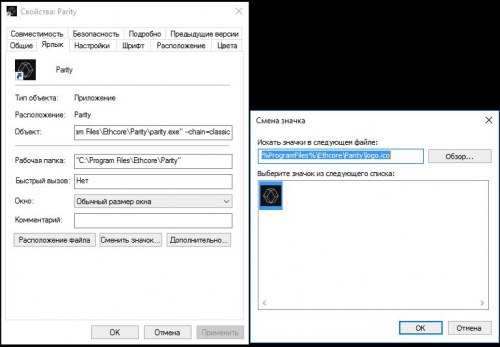
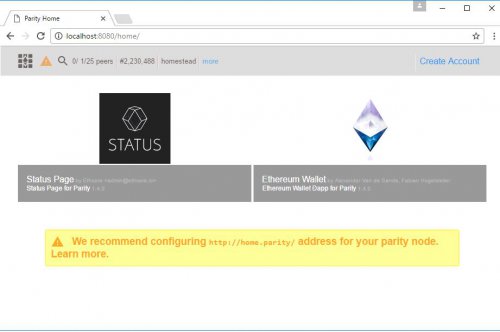
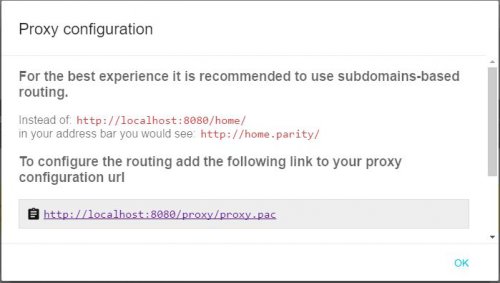


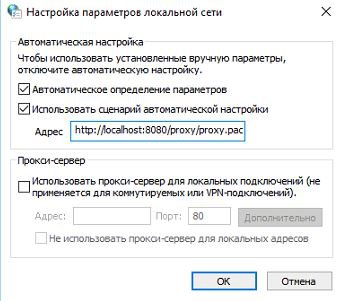
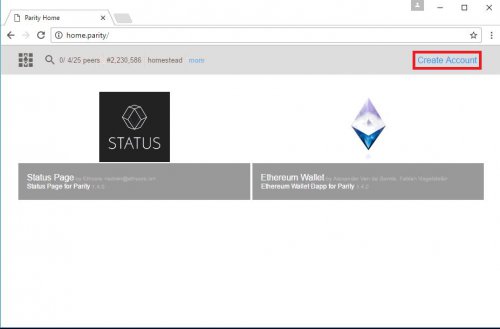
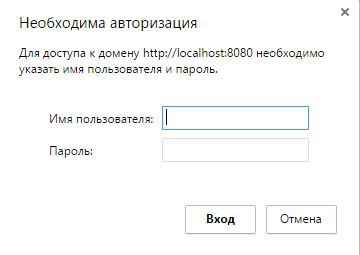









70 Комментариев
Рекомендуемые комментарии
Для публикации сообщений создайте учётную запись или авторизуйтесь
Вы должны быть пользователем, чтобы оставить комментарий
Создать учетную запись
Зарегистрируйте новую учётную запись в нашем сообществе. Это очень просто!
Регистрация нового пользователяВойти
Уже есть аккаунт? Войти в систему.
Войти